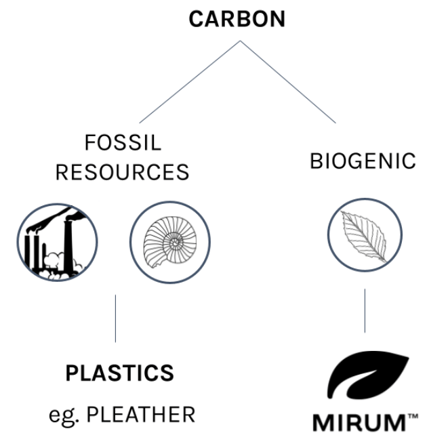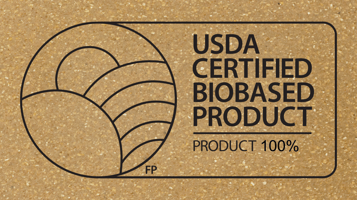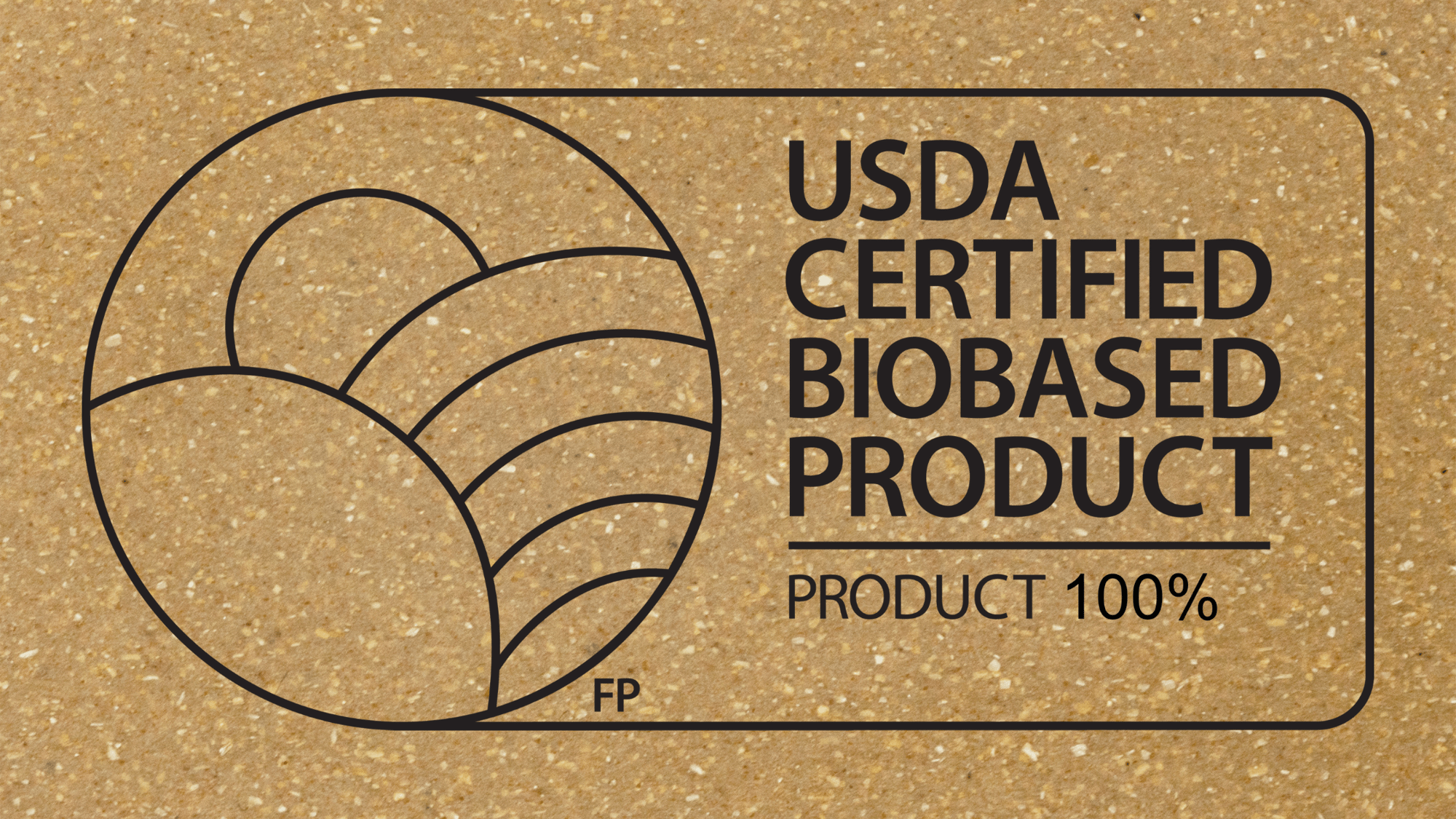First collection of MIRUM® earns USDA 100% Biobased Certification.
The first commercially available collection of MIRUM — especially appropriate for patches and trims, flat goods, and small carry items — has received the USDA 100% biobased certification.
What does that mean and why do we think this is special?
100% biobased means that these MIRUM materials (additional collections being tested) do not contain organic carbon from petrochemical origins. This is a key part of our definition of “100% Natural.” This is how MIRUM flies the flag: Plants, Not Plastic™. By testing the isotopic signatures of the carbon in this collection of MIRUM, the USDA certification shows 0% of the organic carbon in MIRUM came from a fossil resource.
This is a key differentiator from other products in this category which require acrylic coatings, PU binders, or synthetic inputs and as a result of using these petrochemical ingredients, cannot achieve 100% biobased certification.

To help understand what we mean by 100% natural, let’s take a look at what is and is not in MIRUM:
- The absence of petrochemical ingredients as quantified by the absence of organic carbon from non-biogenic sources. Not all carbon atoms are identical, the element carbon can have different isotopes. Think of isotopes as a sort of fingerprint for the carbon element. These isotopes tell the historic origin of the organic carbon contained within a material. Carbon from fossil resources has a different carbon isotope signature, a different fingerprint, than carbon from present day plants or agricultural sources (what are called biogenic sources).
- MIRUM has been tested by the USDA, who uses ASTM D6866, for biogenic/biobased carbon content. For example, a material which tests at 80% biobased contains carbon (20%) that is derived from outside the current biological carbon cycle, this non-biogenic carbon comes from the extraction and use of petrochemicals (e.g. plastics).
- By using petrochemical material derived from crude oil and natural gas, carbon from outside the biogenic carbon cycle, carbon that has been buried for millions of years is released into the atmosphere and ecosystem. This net increase in carbon (especially in the form of carbon dioxide), is what is destabilizing the balance of our climate system.

- The use of biogenic carbon, i.e. plants
- MIRUM’s USDA 100% biobased certification can be said another way: 100% of the organic carbon in this collection of MIRUM are derived from current day carbon cycles. Carbon that is part of the biogenic carbon cycle is essential to life on earth, this carbon circulates between carbon (in the form of CO2) in the atmosphere and carbon in biomass (which can take numerous forms and is generally called organic carbon).
- By using plant-based ingredients, the carbon footprint of MIRUM not only comes from earth’s ecological nutrient cycle but can also help combat climate change. Plants store a significant amount of carbon in soil systems. Even when the plant is harvested, these soil systems can continue to store large amounts of carbon. Additionally, by sourcing our plant-based ingredients from regenerative agricultural practices a whole range of ecosystem benefits can be co-created along with the commercially important crop products.
NFW invites you to choose Plants, Not Plastics. The materials you use should be just as tasteful as your designs. Learn more about our first-collection of 100% biobased MIRUM.

MIRUM embodies not only the mindset of today's conscious consumer but reflects the environmental stewardship and craftsmanship of our brand partners. MIRUM for Patch and Trim is a no-compromise solution: compatible with all major printing methods, durable to 40+ wash cycles (and still counting!), eye-catching aesthetics, and zero-waste production, all without relying on plastics.
